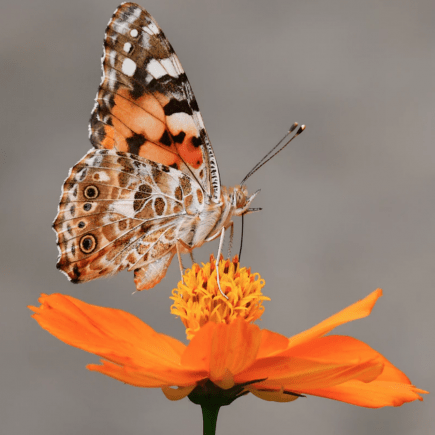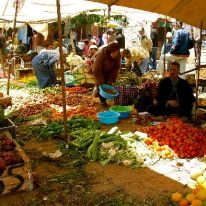
The Moroccan government has partnered with the German Federal Minister for Environment in an International Climate Initiative project. Around the world, most insects are considered pests and a challenge. Assisting the agenda and leading the research to refute these claims is the International Center for Agricultural Research in the Dry Areas (ICARDA). The Rabat based center is one of seven international branches protecting pollinators and demonstrating their benefit. The ICARDA team recently visited Moroccan farmers who are implementing the trial method.
They went to the Marrakech-Settat region and spoke with farmer Mohammed Chokri. He is in his second year of using the Farming with Alternative Pollinators (FAP) method. He reported “our incomes have increased, and with it, our lives have improved. We can sell more than previously. Before we only sold wheat, vegetables, and legumes. Now I know I can grow different vegetables outside of the traditional ones.” Chokri hopes to try the FAP program on a bigger field.
In Morocco, the initiative launched in October 2017. Since then, the FAP team has been conducting experiments within four different climates and with different plants. In Sefrou for example, the cherry blossom season is over however the Rape Seed is blooming and the insects can still collect nectar and pollen. The goal is to educate farmers and prepare them for how to handle upcoming situations.
FAP identifies the economic value of habitat enhancement for farmers and policymakers. The project is also developing the first pollinator inventory for the West Asia and North Africa region. Algeria, Egypt, Jordan, Palestine, and Tunisia are also involved. All partners are trained and participate in small supervised trials. Morocco’s kick-off trial launched in October 2017. FAP is supported by the Federal Ministry for the Environment, Nature Conservation, and Nuclear Safety.
“Sustaining pollinators will definitely increase the climate change resilience of their livelihood,” says Stephanie Christman ICARDA Project Head. “The more knowledge they become on pollinator protectors the better said the ICARDA Project Head. The agency has begun offering training on the FAP Model. Farmers learn how plants that rely on pollinators usually consume less water than wheat. This is important because in the future water will be even scarcer. FAP fits in well with the Moroccan ministry’s energy and sustainability reforms.





